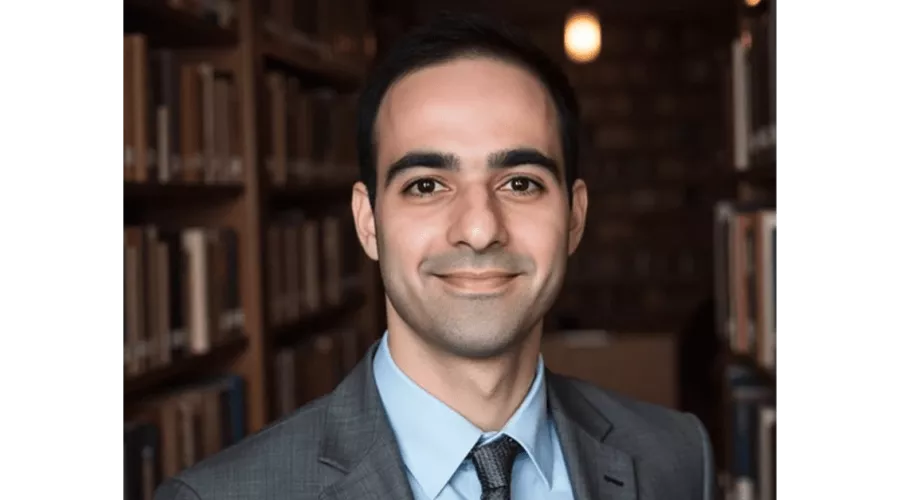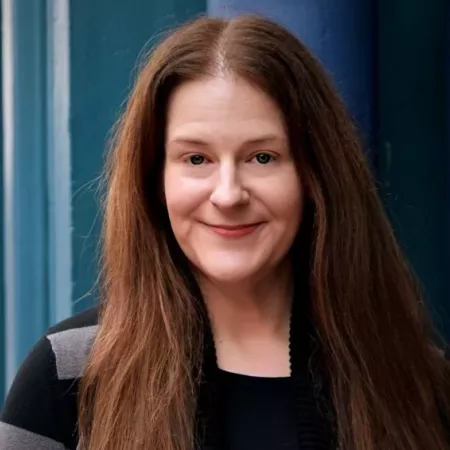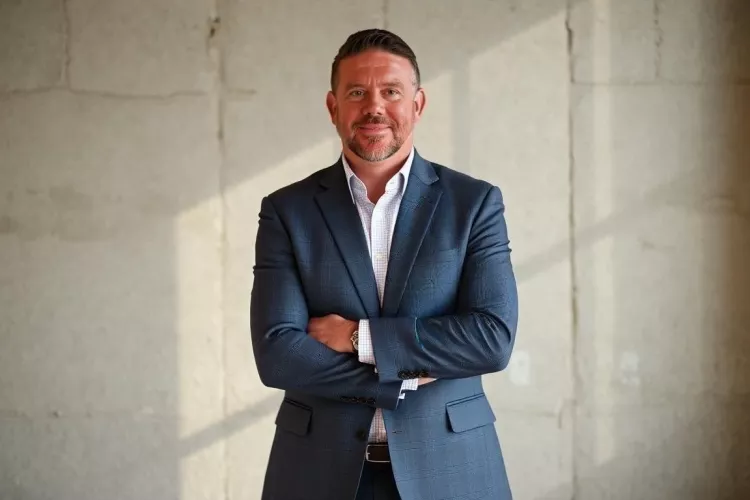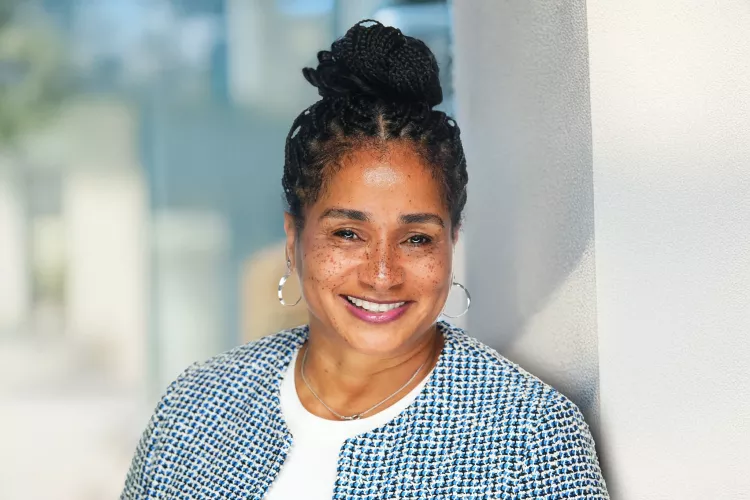Compassionate Code
August 8, 2025
Honored MSBA Alumnus Empowers Underserved Communities Through Healthcare Research
“The more I learn, the more I will grow professionally [and] the more I’ll be able to contribute to making a meaningful change in this world. That’s the mission. That’s the purpose,” shared lifelong learner Danial Malik, the 2025 recipient of the University of Louisville’s prestigious Outstanding Community Engagement award. As Clinical and Translational Research Technician for the School of Medicine, Research Mentor for Health Equity Research at UofL’s Health Sciences Campus Compassion Clinic and Master of Science in Business Analytics alumnus, earning this year’s award reinforced Malik’s belief that his mindset, work and goals are well-aligned, and further inspires him to serve the greater Louisville community through the research methods, machine learning and predictive analytics skills gained from his MSBA program. “I think this award doubled down that [I’m] headed in the right direction [and to] keep going.”
Purpose Through Detours
Influenced by multiple family members who were driven to help others through public health, as a young boy Malik witnessed the importance of overcoming adversity to help others. “I am a first-generation immigrant from Pakistan,” he shared. “I came [to the United States] at the age of seven. [My family] transplanted ourselves in Birmingham, Alabama.” Eventually relocating to Louisville due to his father’s work with UofL, Malik followed suit, earning his undergraduate degree in biology from the university with plans to become a physician. “My dream, my vision was always to go into medical school, but what that looked [like] for me was maybe very non-traditional–something that I had to carve out myself since there was no blueprint. My dad was a PhD. My sister finished her master’s in public health. But I said, ‘No, medical school is for me. I’m going to do it.’” However, Malik encountered challenges along that path which benefitted him in ways he had not imagined. “I took a five-year hiatus from my studies, [and] I focused on research, embarking on the School of Public Health Master of Public Health in Epidemiology. During that time, I learned how knowledge is power [and] how we tap into it to break barriers, make systemic changes and define generational success and intergenerational mobility–it was a pivotal moment in my life.”
Catalyst for Care
As a public health liaison for the School of Public Health & Information Sciences, Malik witnessed first-hand the impact that Karen Krieger had on furthering support of public health initiatives through the Compassion Clinic and wanted to join her in supporting the cause. “When I saw the scope of work [she] is doing…providing all kinds of clinics, all kinds of screenings for those that are the most under medically served–that was inspiring, because she did it year after year at no cost to them,” he shared. “You have the mammogram bus [and] colorectal surgeons screening for colon cancer. You have eye exams, cardiac exams–you name it, it’s there. Mental health is there. Arts and therapy…for the kids [and there are] healthy groceries we’re passing out. This serves the bigger purpose.”
Once Malik joined the Clinic, he began something new–collecting equitable data about a group of people with a mistrust of the scientific community. At that time, Malik noted that, “We [hadn’t] collected any data on [those] patients. We [didn’t] know what community we [were] serving.” With a determination to aid Krieger and the Clinic, he set out to gather information on the population. “We created quality of life, needs and interests [and] some mental health surveys,” he explained. “We just wanted to understand…their biggest needs and interests, [and] also their greatest threats from living a sustainable lifestyle.”
Today, Malik has built a research team for the Clinic comprised of medical students, and he teaches them how to gather, interpret and share data while providing aid to a community in need. “They go in the field, collect this data, interact with the community [and] educate them on what they’re doing and how,” he said. “They envision this is going to change systemic barriers in their community if we present data to the policymakers. I think nothing talks louder than data. How you visualize it and who you present it to could make all the difference.” Even more important than teaching the students on his team how to use data to facilitate social justice, Malik hopes that when they “go on to be future medical doctors, [and] generational physicians and healers…they’ll be able to look at their patient population from another lens–the cultural relativism lens.”
Machine Learning with Meaning
Recognizing the need to further develop his data collection and analysis skills, in 2024, Malik decided to pursue his MSBA. “I’m thankful because a lot of it was very advanced–I’m talking machine learning [and] predictive analytics,” he explained. “On the health sciences side, people are just now starting to realize that we need to shift towards this research, because the old model of just using lab rats is just not sufficient anymore.” With the goal of developing a predictive analytical model based on machine learning, Malik is working with the organoid project, an assessment model that could revolutionize patient care by using machine learning to predict patient responses to various types of medical treatment. “The reason why it’s so novel is because for the last 50 [or] 60 years, we’ve used animal models–rats, mice, flies, et cetera. This is a model where cells come from that individual patient,” he explained. “Then, based on what kind of treatments you give it, you can figure out whether the patient is resistant or sensitive to certain treatments before giving it to them.”
Healing Horizons
This summer, Malik will apply for admission into UofL’s Physician Scientist program, earning dual PhD and MD degrees. “That is one dream that has been on the back burner, and [I’ve been] trying to figure out how I’m going to get to that crossroad on a competitive level,” he said. “Now, I’m blessed to say I can finally hit ‘submit’ and see where life takes me.” With each next step in his journey, Malik hopes to continue to find ways to support to his students and the greater patient community and serve as an example of what anyone can accomplish. “I want to demonstrate how knowledge, compassion and persistence can be passed on from generation to generation, baton to baton to break barriers.”
If you’re passionate about creating meaningful change in healthcare and beyond, our MSBA program can equip you with the analytical skills to lead the way. Harness the power of machine learning, predictive analytics and compassionate innovation. Transform communities—and your career—at business.louisville.edu/academics-programs/graduate-programs/msba/.
About the UofL College of Business:
Founded in 1953, the UofL College of Business fosters intellectual and economic vitality in our city, region and the global business landscape. Our academic programs, research, community outreach initiatives and commitment to student success inspire lives and businesses to flourish through entrepreneurship, innovation, critical thinking, diversity and the power of people.
Connect with the CoB by following us on LinkedIn, Facebook, Instagram, TikTok and X, or by visiting our website.

Erica Hulse is the content strategist for the University of Louisville College of Business, where she conceptualizes and crafts feature stories and social media content that spotlight the people, programs and partnerships driving the college forward. She holds a BA in English and Allied Language Arts from Western Kentucky University and an MA in Higher Education Administration from UofL. Her work has been featured in the college’s award-winning publication Currency, as well as CEO Magazine.
Related News



